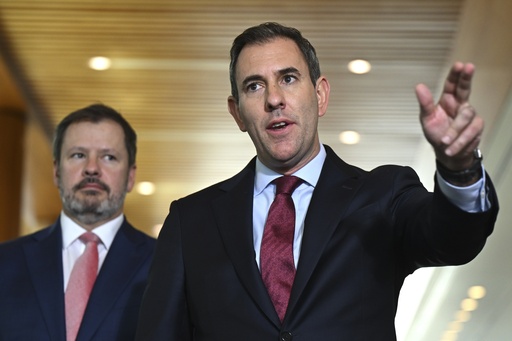
MELBOURNE, Australia — On Friday, an Australian Cabinet minister dismissed Elon Musk’s assertion that the government aimed to control internet access for all Australians through new legislation designed to prohibit young children from using social media. Treasurer Jim Chalmers responded to Musk’s claims, stating that the criticism was expected after the government presented legislation to Parliament on Thursday, which would impose fines of up to 150 million Australian dollars (approximately $133 million) on platforms like X if they permit children under 16 to create social media accounts.
Chalmers expressed that Musk’s discontent with the government’s initiative to protect children online was not particularly surprising, nor did it cause significant concern among officials. “The notion that Elon Musk is unhappy with our measures to safeguard kids on the internet is not shocking to us,” Chalmers remarked to the media.
This latest exchange adds to the ongoing tension between the Australian government and the tech mogul, stemming from efforts to mitigate the harm that social media can inflict on the public. The Parliament may advance the legislation as early as next week, requiring platforms such as X, TikTok, Facebook, Snapchat, Reddit, and Instagram to prohibit young children from accessing their services.
The proposed legislation is set to be debated by lawmakers on Monday. In response to its introduction, Musk voiced his concerns on social media, suggesting that it appeared to be a covert method of controlling internet access for all Australians. When questioned about whether this was indeed the government’s aim, Chalmers emphatically stated, “Of course not.”
He continued by emphasizing that Musk’s feelings regarding child protection online were not surprising, citing that the tech billionaire has expressed similar opinions in the past. “Our responsibility is not to formulate a social media policy that satisfies Elon Musk. Our priority is to implement the necessary safeguards for children online,” Chalmers explained.
Earlier in April, Musk accused the Australian government of censorship following a temporary court ruling that required X to block global access to a video depicting a bishop’s stabbing in a Sydney church. Prime Minister Anthony Albanese further characterized Musk as an “arrogant billionaire” who seemed disconnected from the public and believed himself to be above legal constraints.
Additionally, the Australian eSafety Commissioner, Julie Inman Grant, who initiated the legal action against X, reported that the court proceedings prompted online harassment directed at her and her family, including the unauthorized disclosure of personal information, a practice known as doxxing. She remarked that Musk had effectively sent a “dog whistle” to 181 million users internationally, which resulted in her receiving death threats.
